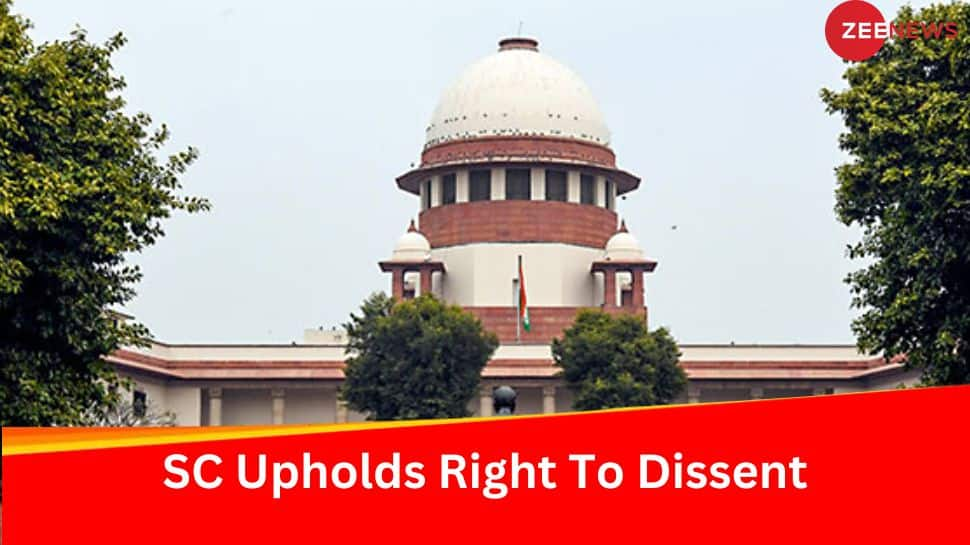Upholding the freedom of speech and right to dissent, the Supreme Court has ruled that every citizen of India has the right to criticise any decision of the State. The SC was hearing a plea filed by a professor who was booked for his WhatsApp status criticising the abrogation of Article 370. The apex court also quashed the FIR registered against the professor.
"Describing the day the abrogation happened as a 'Black Day' is an expression of protest and anguish. If every criticism or protest of the actions of the State is to be held as an offence under Section 153-A, democracy, which is an essential feature of the Constitution of India, will not survive," said the top court.
What Is The Case?
According to PTI, the Maharashtra Police had registered an FIR at Hatkanangale police station against Hajam over his WhatsApp status in which he said, "August 5-Black Day Jammu & Kashmir" and "14th August-Happy Independence Day Pakistan". The professor also used a photo of the moon while wishing Pakistan. Overturning a Bombay High Court order upholding the FIR registered in the case, the Supreme Court dismissed the charges filed under Section 153A (promotion of communal disharmony) of the Indian Penal Code against Professor Javed Ahmed Hajam.
'Wishing Pakistan Gesture Of Goodwill'
On Hajam wishing Pakistan, the top court said every citizen has the right to extend good wishes to the citizens of other countries on their respective independence days. The apex court observed that if a citizen of India extends good wishes to the citizens of Pakistan on 14th August then there is nothing wrong with it and it's a gesture of goodwill.
"The Constitution of India, under Article 19(1)(a), guarantees freedom of speech and expression. Under the said guarantee, every citizen has the right to offer criticism of the action of abrogation of Article 370 or, for that matter, every decision of the State. He has the right to say he is unhappy with any decision of the State," said a bench of Justices Abhay S Oka and Ujjal Bhuyan.
'Right To Dissent With Reasonable Restriction'
The apex court said the right to dissent in a legitimate and lawful manner is an integral part of the rights guaranteed under Article 19(1)(a). "Every individual must respect the right of others to dissent. An opportunity to peacefully protest against the decisions of the Government is an essential part of democracy....The right to dissent in a lawful manner must be treated as a part of the right to lead a dignified and meaningful life guaranteed by Article 21," it said.
However, the bench maintained that the protest or dissent must be within four corners of the modes permissible in a democratic set-up and added it is subject to reasonable restrictions imposed in accordance with clause (2) of Article 19.
The apex court also noted that the time has come to enlighten and educate police machinery on the concept of freedom of speech and expression guaranteed by Article 19(1)(a) of the Constitution and the extent of reasonable restraint on their free speech and expression.
















